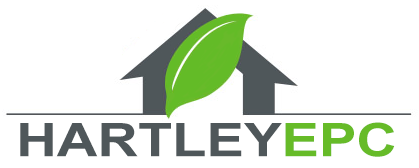Landlords Legionella Risk Assessment Services
Hartley EPC Landlord risk assessments for Legionella offers a comprehensive range of accredited risk assessment services. Contact us today for advice or a site visit.
Hartley EPC Landlord risk assessments for Legionella offers a comprehensive range of accredited risk assessment services. Contact us today for advice or a site visit.
Legionella is a form of bacteria which can cause several infectious diseases that are collectively catergorised as Legionellosis.
There are multiple variances of infection ranging from the less serious conditions of Pontiac Fever and Lochgoilhead fever, through to the potentially fatal and better known form of pneumonia, Legionnaires’ disease. Legionella bacteria is water born and predominantly found in rivers, lakes and water systems.
Legionnaires’ is a form of pneumonia directly caused by infection through Legionella bacteria which in some cases can be potentially fatal. Legionella bacteria are widespread in locations where ambient water temperature (between 20 and 45 degrees celisus) encourages growth; an example of this would be would be within a domestic hot water system. Infections are usually contracted by inhaling small droplets of water containing the bacteria which may be present in the air. Water which is either stored or re-circulated is more likely to house the bacteria.
If a property is managed in its entirety by a professional agent then they would have the responsibility for adhering to the legal requirements. In some circumstances however a landlord may be managing the property themselves, in this scenario it then becomes their sole responsibility to understanding and comply with the legal requirements.
If a property is managed in its entirety by a professional agent then they would have the responsibility for adhering to the legal requirements. In some circumstances however a landlord may be managing the property themselves, in this scenario it then becomes their sole responsibility to understanding and comply with the legal requirements.
All landlords have a responsibility to check whether Legionella is present at a rental property and understand the ways in which risks can be reduced or minimised so that water systems do not become contaminated.
An extract from chapter 3 of the Health and Safety at Work Act 1974 states that “if you are someone in control of premises, including landlords, you must understand the health risks associated with legionella”. It is therefore a legal requirement for a landlord to ensure a thorough and detailed risk assessment is conducted at any property which is being used as rental accommodation.
Once a risk assessment has been completed and produced it is then the landlord’s responsibility to manage any risk and take preventative measures to reduce the chance of future contamination. Accurate records must be kept up to date for each individual property and retained for a period of at least 5 years. Ultimately the responsibility is with the landlord to ensure that legislation is being adhered to.
A Legionella risk assessment will consist of the following information:

An assessor should be able to determine whether exposure to Legionella will create any future risks as well as indentifying:
Landlords and agents will be made fully be aware of the risks that Legionella bacteria poses and also educated on the factors that will allow the bacteria flourish. The assessment will identify all the risks and any potential sources of exposure.